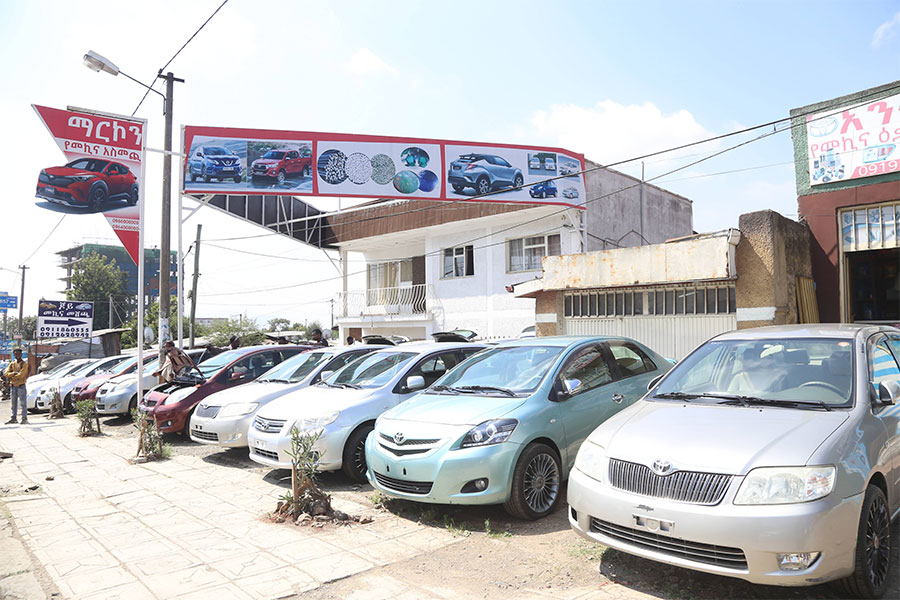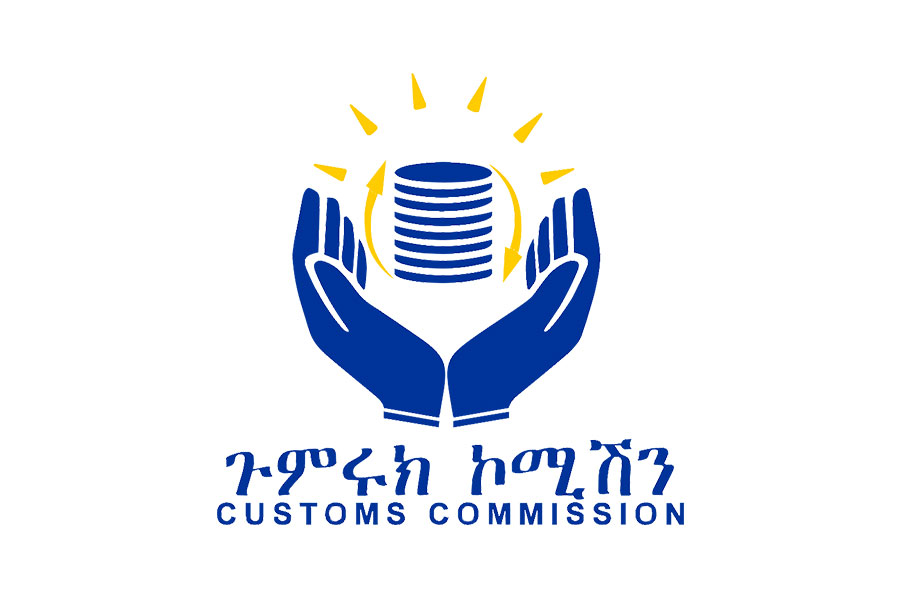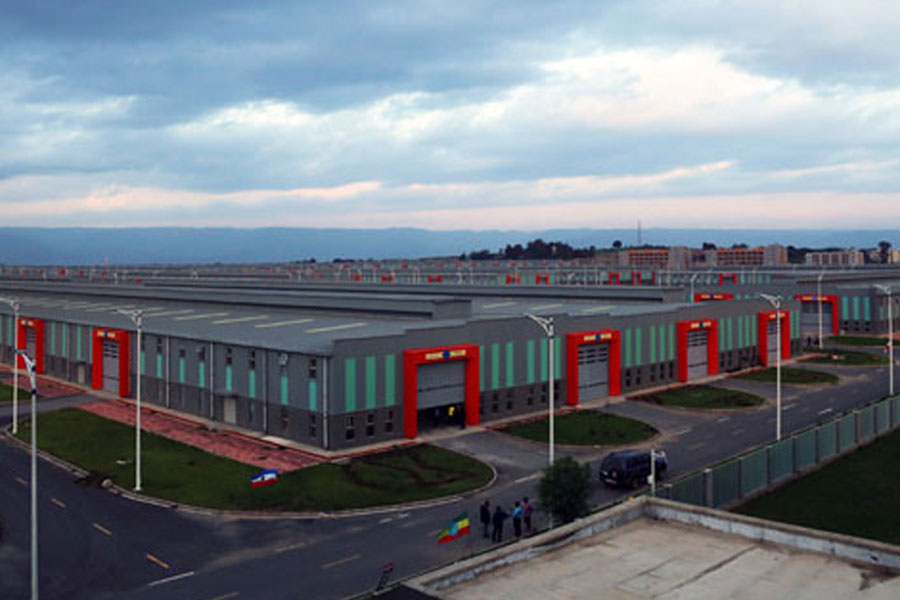
Fortune News | Sep 18,2022
The chaotic traffic and crowded walkways in the Gurd Shola neighbourhood can be difficult to manoeuvre for shoppers. The bustle also makes it tough to get a good look at any of the many shops located in the area. However, a modest women's clothing shop on one street corner is easy to spot because of the brightly dressed mannequins placed on its doorsteps.
The shop itself is filled with colourful fabrics and glittering lights to lure in potential clients. The strategy seems to work, and a steady stream of shoppers walk into the shop looking for particular products or just out of simple curiosity.
Abiy Aseged, the owner of the shop, is always ready to greet his customers. He has seen his fair share of challenges in the five years that he has been operating his establishment. This year, the staggering economic fallout caused by the Novel Coronavirus (COVID-19) pandemic has been his biggest worry. Although dealing in clothing and textiles remains a particularly lucrative business, his trade's familiar pattern has recently begun to shift due to the pandemic and other factors.
Like most small clothing retailers, Abiy is used to buying the majority of his stock from small-scale importers that source the products from Dubai, United Arab Emirates.
He had many reasons for preferring clothes imported from Dubai for almost four years, and his selection earned him a loyal customer base that kept his trade thriving. However, the profits from the habitual Dubai route have recently slumped and, coupled with the pandemic, have made it increasingly difficult for him to sustain his business.
Since there were many confirmed cases of COVID-19 among people coming from Dubai, traders used to travelling there did not prefer to return.
Many small-scale importers that supply clothing shops like Abiy's have recently taken to looking to Turkey as their primary source for clothing and textiles. Since their businesses are so dependent upon the importers, Abiy and others like him have had to adapt to the change to survive.
For over a decade now, Dubai has been the main destination for those engaged in the small-scale import of clothing and textiles and other products such as electronics. These individuals had many good reasons for choosing the desert city as their primary source of goods.
The most convincing reason for preferring Dubai is its proximity to Ethiopia and the abundance of transportation to and from, with an average of three flights a day flying out of Addis Abeba Bole International Airport. Emirates and Fly Dubai also have daily flights from and to Addis Abeba and Dubai. The relatively reasonable ticket prices were also a plus, with a round-trip costing anywhere between 22,000 Br to 26,000 Br depending on the season.
Small clothing retailers are stocking their shops with Turkish imported clothes to lure clients who care more about quality.
A simple visa application process which takes about three to five days on average and costs around 5,000 Br, including a recently added health insurance fee brought on by the COVID-19 pandemic, is another advantage for the importers.
Additionally, since Dubai is a world-famous shopping destination and a centre of trade, the large variety of clothing, textiles and fabrics available in markets makes it an ideal destination for the importers.
The majority of small-scale importers are also able to afford accommodations in the metropolis comfortably.
"The best option is to pitch money together in groups to afford the hotels or hostels," said Mariamawit Birhanu, a small-scale importer who regularly travels to Dubai.
But recently, due to the economic shake-up caused by the pandemic, small-scale importers were left unsatisfied with the profits and the market resources available to them in Dubai. They say that currently the pricing is not as profitable as it used to be and the varieties of clothing on offer there are narrowing down because of the shuttering of various shops.
Customers in Ethiopia are growing more selective about the quality of clothing they choose to buy, and the cheap products being brought in from Dubai are not cutting it anymore, according to the retailers and the importers.
"As the consumer becomes more aware and sensitive to shopping preferences, quality becomes their priority," said Abiy.
These reasons have also led many small-scale importers to look to Turkey as their primary source for clothing products.
Turkey is one of the leading textile manufacturers globally; its markets offer various products of higher quality than those available in Dubai while costing less. There is also a lot of demand here for the quality of Turkish products, according to Abiy.
"We lacked a good sense of judgement to navigate and forecast the changes, but we know now, and we're sticking with Turkey," says an importer who wishes to remain anonymous.
Starting from March, flights completely vanished due to COVID-19, and even after the flights resumed, fares for Dubai became expensive, according to Ketsela Weldesenbet, founder of Ketsela Travel Agency.
Travel expenses including health insurance and a Covid-19 certificate can cost anywhere between 24,000 Br and 25,000 Br on average. not taking into account accomodation expenses, she explained. Visas can cost between 5,000 Br and 6,000 Br, according to her.
To fly to Turkey, there is no need for a COVID-19 test or health insurance. Flights right now are in a range between 21,000 Br and 22,000 Br, she added.
"Plus, clothes are cheap, so importers find it more profitable," said Ketsela.
Frequent trips to Istanbul are available from Bole International Airport. Ethiopian Airlines and Turkish Airlines have one daily flight between the two countries.
But Turkey also has its drawbacks. The visa application process can take up to a month and is more stringent in its requirements. Travellers are required to provide either a business license or a valid medical reason to travel. The accommodations are also more costly since Turkey is a relatively new destination for the importers and its not as easy to find like-minded people to travel with.
Many small-scale importers have opened a diaspora account to easily access foreign currency and process living permits to easily travel twice to three times a month to Istanbul.
The transition has been a bittersweet experience for the small-scale importers trying to make headway into a market that has long been dominated by cheap Chinese products imported from Dubai. The importers distribute the Turkish products at higher prices than those from Dubai, resulting in dearer retail prices for customers in Addis.
With Genna, the Ethiopian Christmas holiday, just passed, shops prepared for a busy couple of weeks. Buyers were eager to explore what the market had to offer, and importers gazed at Turkey in preparation for the high demand.
"Since the market is going to be flooded with new products and an overwhelming crowd, the best decision is to explore the options better fit for high profitability and consumer satisfaction," said a men's clothing shop owner who wished to remain anonymous.
An option like Turkey is positive news both for shop owners like Abiy and for the small-scale importers, because it allows them to expand their market share and reach out to more customers and helps them to introduce new and different products into the market, according to Habtamu Birhanu (PhD), a business and economics lecturer at Addis Abeba University's School of Commerce.
However, the lecturer also voiced some doubts as to the new venture.
"For a market like Ethiopia, it could be challenging to keep this trend on its feet," said Habtamu. "Due to the economy, the majority of the population tends to bend toward affordability rather than quality."
The expert also mentioned that as the markets in Dubai become more crowded and demand increases, prices are also bound to increase, and the small-scale importers will be forced to look elsewhere for their goods.
He cited Turkey and Bangladesh as the most likely replacements for Dubai.
Though Ethiopians are accustomed to a Birr that loses value to most major currencies year after year, its relationship with the Turkish Lira, one of the most widely traded emerging market currencies, is quite different.
Although it lost considerable ground to the dollar and euro last year, the Ethiopian Birr gained 3.3pc against the Turkish Lira during the whole of 2020. At its best level, it was up 20.7pc against the Lira on November 9, 2020. This is in sharp contrast to the Emirati Dirham, the currency used in Dubai, which gained 22.8pc against the Birr during the same period.
PUBLISHED ON
Jan 16,2021 [ VOL
21 , NO
1081]

Fortune News | Apr 22,2022

Fortune News | Jul 18,2021

Fortune News | Feb 01,2020

Commentaries | Oct 21,2023

Fortune News | May 08,2021

Dec 22 , 2024 . By TIZITA SHEWAFERAW
Charged with transforming colossal state-owned enterprises into modern and competitiv...

Aug 18 , 2024 . By AKSAH ITALO
Although predictable Yonas Zerihun's job in the ride-hailing service is not immune to...

Jul 28 , 2024 . By TIZITA SHEWAFERAW
Unhabitual, perhaps too many, Samuel Gebreyohannes, 38, used to occasionally enjoy a couple of beers at breakfast. However, he recently swit...

Jul 13 , 2024 . By AKSAH ITALO
Investors who rely on tractors, trucks, and field vehicles for commuting, transporting commodities, and f...

Oct 11 , 2025
Ladislas Farago, a roving Associated Press (AP) correspondent, arrived in Ethiopia in...

Oct 4 , 2025
Eyob Tekalegn (PhD) had been in the Governor's chair for only weeks when, on Septembe...

Sep 27 , 2025
Four years into an experiment with “shock therapy” in education, the national moo...

Sep 20 , 2025
Getachew Reda's return to the national stage was always going to stir attention. Once...